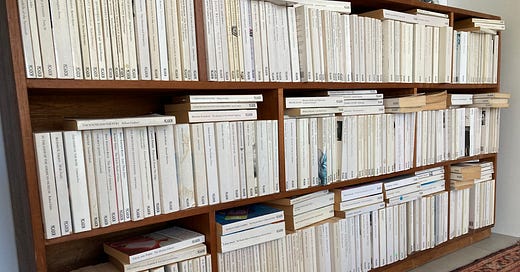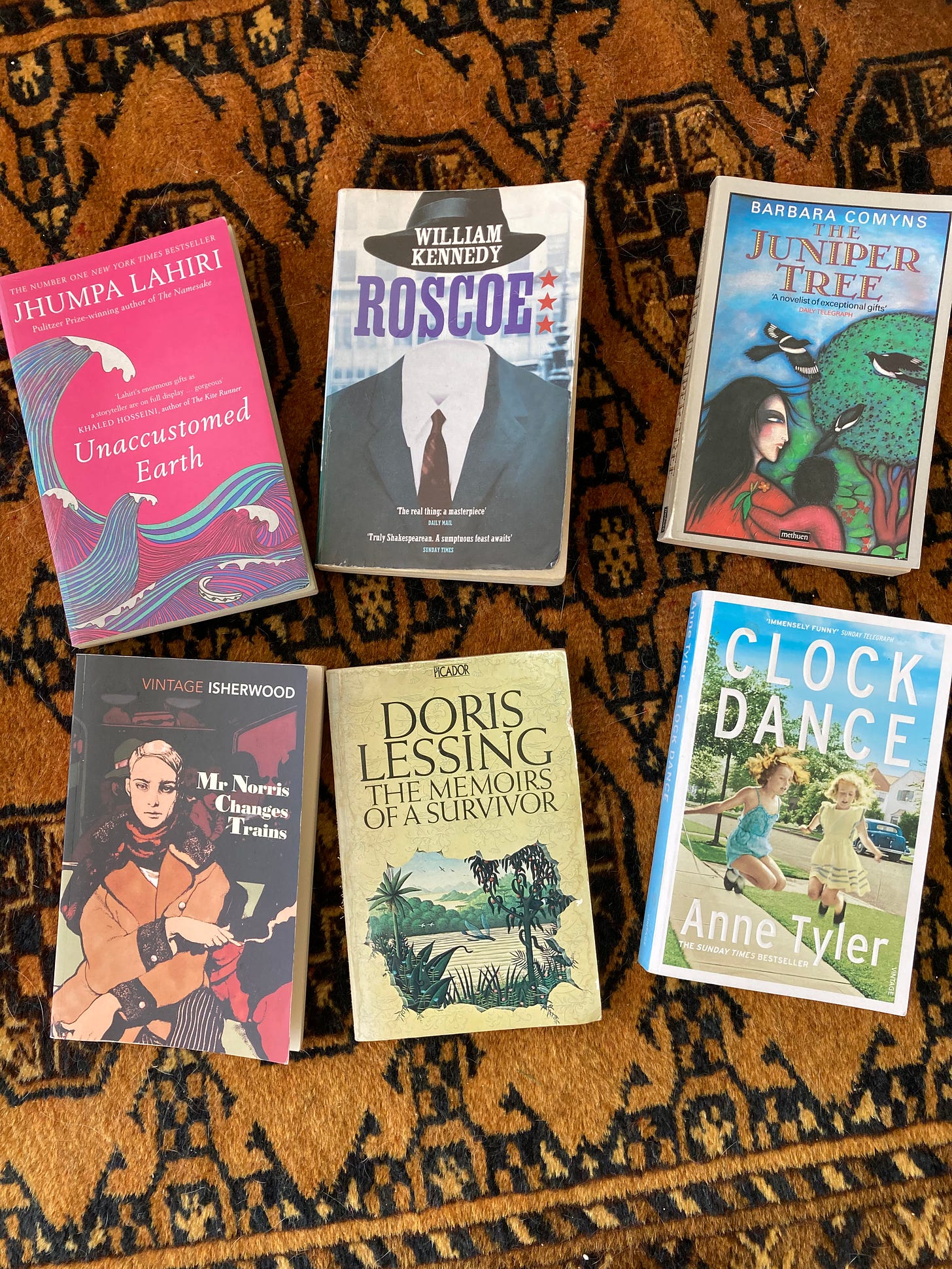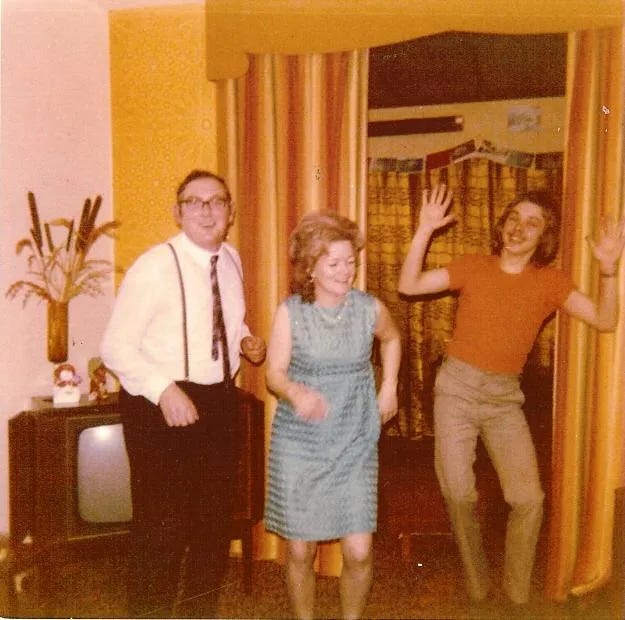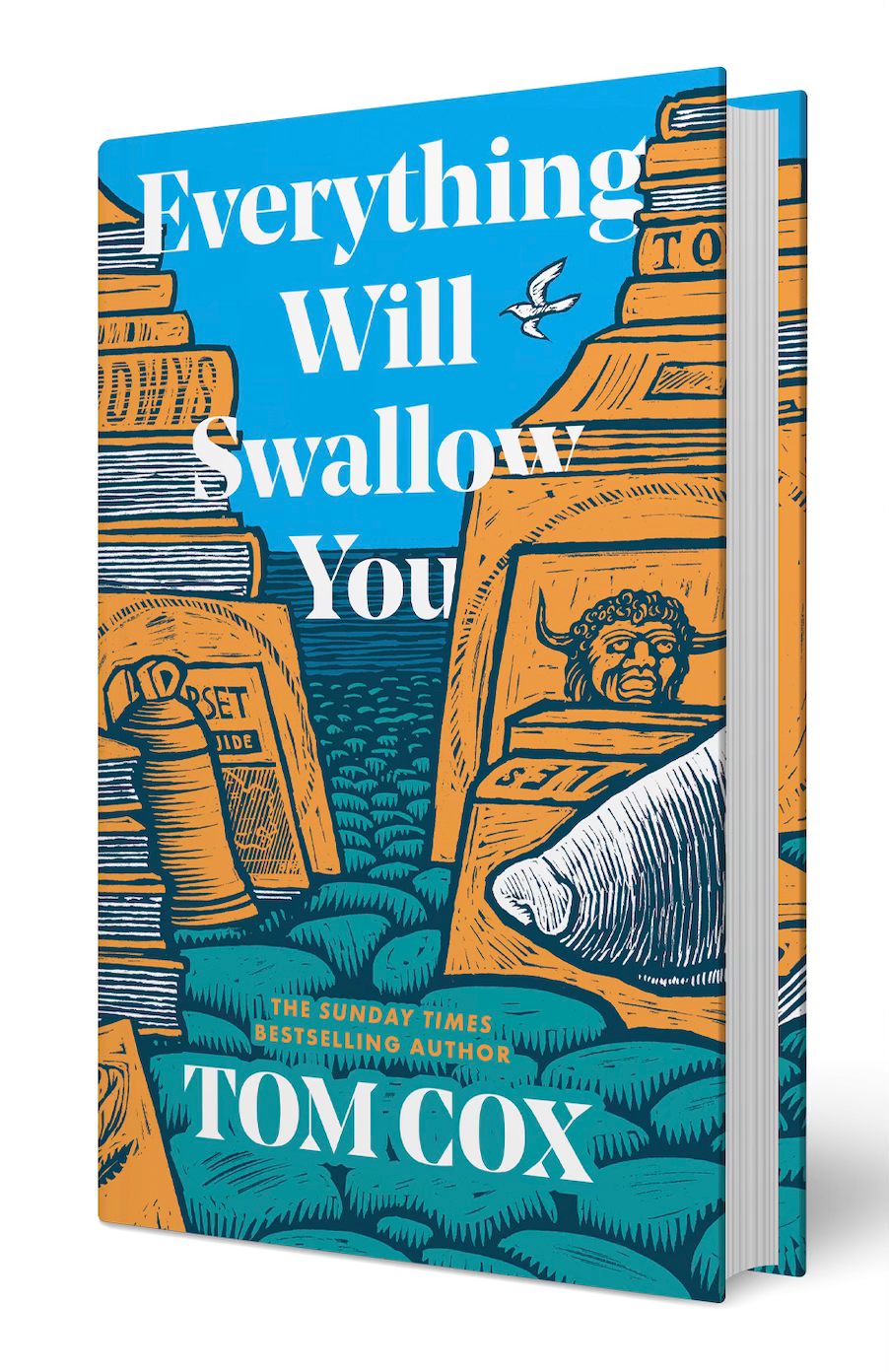I’ve had Covid for the last fortnight. “It’s only like flu or a really bad cold nowadays” I’ve been told but something I have noticed about flu or a really bad cold is that, while they can be known to root around and locate your physical and psychic weak spots, they don’t do it with quite such pitiless efficiency, nor go quite so medieval on them. I’ve had some bad dreams under the spell of flu but none quite so elaborate and vivid as those I’ve had in the past two weeks. Since the Tuesday before last, I have been a nervous goose flying first class to a job interview accompanied by a placatory Walter Matthau, acted as a human shield to prevent two full-size tigers from eating my cats, hurled myself into fetid rat-infested water to rescue a friend’s lost manuscript and bravely become one of California’s first white settlers via a tunnel beneath a rural shopping centre in Wales. On the plus side, I am reading significantly more than when I did not have Covid. I must have purchased my used paperback of Sour Sweet, Timothy Mo’s Booker-shortlisted novel about a Chinese family striving to get a takeaway restaurant off the ground in 60s London, in 1998 or 1999 and I’m wondering what on earth made me to wait so long to get to it: it walks a tightrope of funny and frightening which becomes loftier with every page. The Juniper Tree is one of Barbara Comyns’ lesser known books and, while I didn’t enjoy it quite as much as her earlier novels Our Spoons Came From Woolworths and The Vet’s Daughter, it had - despite the fact she was well into her 70s when she wrote it - the same compelling feel of listening to an eloquent, self-effacing child-woman breathlessly telling you a lot, but never quite too much, about what she did on a dark unfortunate holiday. I’ve also polished off the audiobook of Leif Enger’s So Brave, Young And Handsome, finished a couple of things I began pre-illness - JG Farrell’s The Siege Of Krishnapur and Claire Keegan’s Antarctica - and am simultaneously partway through William Kennedy’s underrated Roscoe and Jhumpa Lahiri’s quietly breathtaking Unaccustomed Earth.
I used to joke, gesturing towards the hundreds of unread books on my shelves, about the lengthy disease I had planned for the future which would finally permit me to rip through them. Maybe there was more truth to that than I realised: the last time before now that I crammed as much reading into the same short space of time was during my previous tussle with Covid, almost precisely two years ago. When my body is not so violently at war with itself, it is similarly rare for me to be without a book in my hand, but I go around with a permanent feeling that I could, and should, be reading more. Part of this is the work of my own personal reading demon: I am unable to ever quite convince myself that I am not still 20-year-old me, fresh from an extremely unliterary, sporty adolescence, newly, voluntarily plunged into a world of words - populated by people who knew what a formidable number of them meant - and feeling a severe need to play catch-up in order not to be “found out”. But there are wider cultural factors at play, too. Paradoxically, those factors make me miss that ill-educated 20-year-old, or at least a precious commodity he possessed: space.
But what precisely did that space consist of? In one sense, it was a very real byproduct of being only part-employable: having an editor who demanded no more than 300 words from me per week meant more time to consume those written by wiser people with much bigger brains. Soon, appetite inevitably exceeded capacity. In bookshops I was the kid in the local park playing football against himself, convinced he was a small step from the World Cup final, the first-time skier looking at an Alpine black run and telling himself, “You’ve got this.” Margaret Atwood and Paul Auster’s backlists? I saw no potential issue in having both polished off in a fortnight. Gravity’s Rainbow? Yeah, people said it was formidable, but one quiet weekend ought to do it. By the time I was 24, my TBR pile was no longer “something I needed a bit of time to catch up on”; it was a self-constructed wall monster now set to look down on me in judgement for the remainder of my life. Worse still, I cut savagely into my reading time by beginning to write these pesky books of my own. In spring 2009 - around the same time I let somebody convince me to sign up for an iPhone - my publisher told me it was vital that I made a Twitter account. I’d probably been reading an average of 70 books a year for the decade preceding that: golden days, I would soon see those as. Days of turning up to meet a friend in a pub and having to cough loudly to announce your presence because they were so absorbed in the book they’d brought with them. Days of dawdling in a branch of Borders and buying an imported reprint of a JF Powers novel you genuinely intended to read even if you never did. About half a year after I signed up to Twitter, I had the dispiriting realisation that I’d been reading the same John Irving book for three months. Ok, so Last Night In Twisted River is no A Prayer For Owen Meany or A Widow For One Year, but I couldn’t put the blame on John’s dip in form: the fault was mostly with the new black rectangle in my pocket. On the bright side, the countless hours of hard work I put in on Twitter that year, and the year after, and the year after that, probably enabled me to sell an entire 26 books of my own, worldwide: around the same number I was now managing to read over an average 12-month period.
But that was then. It’s late October 2024, I haven’t had a Twitter account for quite a long time, and I have, since January 1st, with additional help from Audible and some new comfy headphones, read 40 books, and this as a slowish reader who doesn’t treat reading as the numbers game he once sort of did. Perhaps most crucially I feel like I’ve been devoting a lot of time to reading - certainly much more than when I used to feel manacled to social media. But I also can’t escape the feeling that that total should be a little higher and I am aware that, in a sense, reading books is a battle in a way that, once upon a time, it wasn’t. That is to say: it’s never a battle while I’m inside the activity itself but granting myself permission to get inside it can be.
“I just don’t get the time these days,” many people have said to me lately, on the subject of reading books. But what is sapping that time? Is it childcare, demanding and exhausting careers? Definitely, in many cases. But more likely it is the general fast spin cycle of culture, a vastly effective illusion of urgency and bustle that now reaches far beyond social media into every crevice of our lives. We have, somehow, somewhere along the line, been conned into living at triple speed. A security code is sent to the phone you have misplaced somewhere in the house and such a tense countdown begins, as you search under cushions and tables, an observer from the not too distant past could be forgiven for thinking you were defusing a bomb, rather than just, say, trying to log into the government website to check your tax bill. It’s now de rigeur for documentaries to show a lightning-fast jump-cut montage of their coming selves in their opening seconds, so aware are they of how pushed for time and spoilt for choice their potential viewers are. The Netflix menu now feels like having a thousand baby’s heads all bawling at you at the same time. Frustrated with the sedate pace of your audiobook? That’s ok: they can speed it up for you now. Our text message and WhatsApp culture demands that each message is replied to instantly (“Don’t leave me on read”), yet almost nobody can ever find the time to meet up because everyone is “too busy”. But with what? With the simple act of being a person, padlocked to 2024 and all its attendant noise. Stepping off this bullet train takes strength and discipline - perhaps even more than it did last decade during the peak years of Facebook, Twitter and Instagram. Switching all of it off and reading a book, a real one, made out of paper and everything, becomes an act of radical, world-slowing defiance.
Of course, Substack is hardly the best place to argue that people aren’t reading any more. A percentage of people do still read as immersively and intensively as ever, and probably always will, but elsewhere the role of books has changed. In a distraction culture, they can easily become hypothetical accoutrements of a life not quite lived. I used to naively think that all those books people posted a passage from on Twitter and Instagram were being read, rather than just quoted then cast aside, largely uninvestigated, in favour of whatever there was to not read next. I was thinking recently, in a moment of regrettable self-laceration and navel-gazing, about a few acquaintances who used to read my books and no longer do, but then it hit me: those same acquaintances don’t read books at all any more. They read little bits and bobs of this and that online and watch epic TV shows, some of which are written with something close to the discipline and wit of a good novel. Someone I was speaking to in a pub recently told me what her favourite novel was then admitted she’d never actually read the last quarter of it. If you write books, you are now aware, in a way you didn’t use to be, that your book will be judged just as often on what it sounds like it might be as what it is… maybe more often, in fact. It’s frustrating, but, when you look around and take in the state of play, expecting more from someone begins to feel greedy. You understand the paralysis that drives the behaviour you’re seeing because, really, what person living on grid right now has not felt it? There is so, so much at the buffet. How do you even begin to commit? It’s far easier to go for the default option: pick at everything, a tiny bit, forever.
A few weeks ago I was sitting in my car outside my local supermarket and noticed a woman leaning on the vehicle adjacent to me, deeply absorbed in a book. I wasn’t close enough to work out what the book was. Who knows? Perhaps it was some unmitigated piece of manure a celebrity had pretended to write for lots of money, but I liked to think not. Whatever the case, I noticed how much the sight elevated my mood, especially on a day when, earlier, in the city centre, no less than three people lost in their phones had walked directly into me (maybe they were just really lost in Middlemarch on ebook, but I suspect not). Later, when I told my partner about the woman in the supermarket car park, I realised my voice contained the same excitement and surprise it might have if I’d announced, “I saw a wild panda over by the village church today, just hanging out, being true to its panda self and not giving a fuck.” I’d wanted to high-five the reading lady, congratulate her on being part of The Anti-Scroll Resistance, defying Big Tech’s lie that there is no longer time to absorb long, nuanced narratives, but that would have meant breaking the rare, magical spell she had cast over herself.
I suspect that, no matter how impervious I make myself to all that can potentially distract me from reading, I will continue to live with the niggling sense that I haven’t read enough. With every book we expand ourselves with, we simultaneously expand our awareness of the vast number of books there are to read and, probably, our desire to read as many of them as possible. I might romanticise that final innocent moment, towards the close of the last century, when I had no more than four channels of TV at my disposal, no laptop or mobile phone and the only unread books on my shelf were the half dozen I’d bought or borrowed from the library that month, but I know I’m a better reader now than I was then: more open-minded, more global, less concerned what anyone else thinks I “should” be reading. Many books that would have been far too subtle for me at 23 send twin torpedoes directly to my heart and head at 49. Maybe I’m looking for more from books now, harder to impress, but when I pick the perfect one - this Jhumpa Lahiri collection is fast becoming an example - I believe I get more out of them.
I am aware that, when I’m thinking about the more general way reading habits have changed, I am prone to make an easy mistake: I can slip into the assumption that everyone reads with the same motives and priorities as me. Every bookworm builds themselves out of books to an extent, but when your job is writing them, the process can be a little more intense and regimented. My idea of “fun” where reading is concerned has mutated over the years and is by nature probably a little different from someone who isn’t asking “How will this feed my writing brain?” every time they pick up a book. But when I’m in a bookshop my excitement is as childlike as ever. It’s when I’m at my most crazily optimistic. My eyes fill with glitter and wonder and I see 48-hour days ahead of me, lazy weeks where nothing bleeps or buzzes for my attention and my house cleans itself and I never, ever get trapped in an inhuman nine hour bureaucratic loop sorting out a problem with my car insurance. It’s unrealistic, but when you find some way to get out of the high speed paralysis we’re all in - whether it’s via illness, quitting caffeine, locking your phone in a drawer or some other method you hit upon - you realise it is in fact possible to get just a little closer to the dream. You step inside a book. It’s nice and warm there so you decide to be bold, go against the grain, and stay. When you finally re-emerge, there’s a revelation waiting for you. You discover this insane digital tornado we live inside has been howling a dramatic untruth. Nothing exploded or tore apart irrevocably while you were gone. Maybe you failed to pay a bill on time, missed this week’s rubbish collection, lost a few Substack subscribers and left a stack of messages unread. But the restless overseasoned world you left behind is still there, largely unchanged, and just as indifferent to you as it always fundamentally has been.
I love these extremely 1970s photos of my nan, my granddad and my uncle dancing in my nan and granddad’s living room, a few years before I was born. I’m so keen to know which song was playing. Kind of hoping it was ‘Psychotic Reaction’ by The Count Five, ‘Unhooked Generation’ by Freda Payne or ‘I Wanna Be Your Dog’ by The Stooges.
I was in Nottingham - the place where I was born, and where I still like to go to when in search of a hard-hitting virus to be derailed by - two and half weeks ago and I popped into the big Waterstones store there to sign some copies of my recent novel, 1983. The book is centred around a fictionalised version of the primary school I attended in the city in the early-mid 80s. The shop was busy and obviously a little shortstaffed that afternoon so I told the assistant not to worry about going to fetch the hardbacks - plus a couple of my earlier books they had in stock - and that I would grab them off the shelf myself. When I arrived back at the trolley where I’d left a couple of books, the assistant was gone. In her place I found an elderly female customer in a mask flicking through the pages.
“I’ve read that, and I can seriously recommend it,” I told her. “But you probably shouldn’t trust my opinion. It’s a bit biased owing to the fact I wrote it as well.”
She looked up at me with a grin and took off her mask. “You probably don’t remember me, do you?” she asked.
It took my mind less than two seconds to take a leap of close to 40 years, to the last time I’d seen her face. “Yes I do. You’re Viv Fry. You used to teach at my school.”
“How on earth did you remember that?”
“I remember pretty much everything about that school. It was brilliant and is one of the major childhood experiences that formed me. That’s why I wrote a book based on it.”
“Oh really? Which book is that?”
“The one you’re holding right now.”
I found out that soon Viv will be celebrating her 90th birthday.
At a time when I’m being reminded of a lot of the difficult aspects of writing and publishing books, that was a very nice reminder of what a special and magical thing it can be.
And if you did give me Covid, Viv, I forgive you.
You can purchase all of my recent books, including 1983 and Villager, with free international delivery, from Blackwells UK here.
You can pre-order my next novel Everything Will Swallow You here for March next year.









I have a theory that we love the books best that we have read whilst being ill - because of the ability to sink into them for longer periods of time. I still think it’s true.
Yes, yes, yes, a thousand times yes!
I posted something similar on the secret blog under my pen name self - where I uncover that the act of writing has been superseded by the social media suck. Calling it a vortex is quite apropos.
I'm relieved to have another writer confirm that our time has been stolen by our phones certainly, and by our own doom scrolling. I too have found that I read less these days - too many posts and reels and notes to publish to introduce people to who I am, so eventually they'll buy my book.
The irony.
The very real problem with this - with more and more people not reading at all (because seeing the comments here absolutely reading an e book or listening to an audiobook counts as reading) is that you have less opportunity to develop the muscle of empathy. Part of the point of imagination is the ability to put yourself in someone else's shoes. To understand that another human being is the main character in their life as you are in yours. And that others have felt the same, have dealt with similar problems. In essence, we read to know we are not alone.
Perhaps this is one explanation as to why we as a species are lonelier than ever, despite having the opportunity to make connections across the globe.
Thank you for writing this Tom - it made me feel less alone and more determined to dive back into my TBR pile - both physical and digital. 📚💻 Cheers and hope you're well soon. 🙏🏻💙💚🦋